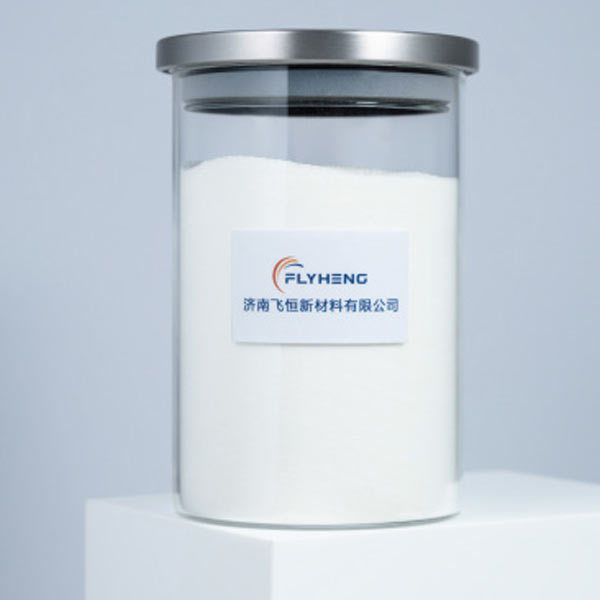Exploring the Benefits and Applications of AC Foaming Agents in Chemical Industries
Release time: 2025-07-04
AC Foaming Agents are essential components in various industries, particularly within the chemical sector, where they play a pivotal role in enhancing the properties of different products. These foaming agents are specifically designed to create stable and consistent foam, which can be advantageous in numerous applications, including cleaning agents, construction materials, and food processing.
One of the primary benefits of AC Foaming Agents is their ability to improve the texture and volume of foams. By generating a dense and uniform foam structure, they contribute to the performance of products that require a stable foam for optimal functionality. This is particularly crucial in applications such as personal care products, where the aesthetic appeal and sensory experience of foams can significantly influence consumer preference.
In addition to enhancing foam stability, AC Foaming Agents also exhibit excellent emulsifying and surfactant properties. This dual functionality allows them to effectively reduce surface tension, which is critical in ensuring that formulations blend well. This characteristic is particularly valuable in the formulation of cleaning agents, where the ability to penetrate and lift dirt and grease can lead to greater cleaning efficiency.
The diverse applications of AC Foaming Agents extend beyond personal care products. In the construction industry, these agents are used to create lightweight concrete and insulation materials. By incorporating AC Foaming Agents into these materials, manufacturers can achieve improved thermal insulation properties and reduced weight, leading to cost-effective and energy-efficient construction solutions.
Moreover, AC Foaming Agents are increasingly being explored in food processing applications. They serve as stabilizers in whipped toppings and foamed desserts, enhancing texture and mouthfeel. The food industry benefits from the use of these agents as they can improve product quality while adhering to regulatory standards for food safety.
The selection of the right AC Foaming Agent is crucial for achieving optimal results in any formulation. Factors such as compatibility, performance characteristics, and environmental considerations should all be taken into account. Formulators are encouraged to conduct thorough testing to identify the most suitable agent for their specific applications, ensuring that the foaming agents used not only meet performance expectations but also align with sustainability goals.
In conclusion, AC Foaming Agents are vital ingredients in the chemical industry, offering various benefits across multiple sectors. Their ability to create stable foams, improve emulsification, and enhance product performance makes them an invaluable asset. As industries continue to innovate and evolve, the role of AC Foaming Agents will undoubtedly expand, paving the way for new applications and advancements in formulation technology.
One of the primary benefits of AC Foaming Agents is their ability to improve the texture and volume of foams. By generating a dense and uniform foam structure, they contribute to the performance of products that require a stable foam for optimal functionality. This is particularly crucial in applications such as personal care products, where the aesthetic appeal and sensory experience of foams can significantly influence consumer preference.
In addition to enhancing foam stability, AC Foaming Agents also exhibit excellent emulsifying and surfactant properties. This dual functionality allows them to effectively reduce surface tension, which is critical in ensuring that formulations blend well. This characteristic is particularly valuable in the formulation of cleaning agents, where the ability to penetrate and lift dirt and grease can lead to greater cleaning efficiency.
The diverse applications of AC Foaming Agents extend beyond personal care products. In the construction industry, these agents are used to create lightweight concrete and insulation materials. By incorporating AC Foaming Agents into these materials, manufacturers can achieve improved thermal insulation properties and reduced weight, leading to cost-effective and energy-efficient construction solutions.
Moreover, AC Foaming Agents are increasingly being explored in food processing applications. They serve as stabilizers in whipped toppings and foamed desserts, enhancing texture and mouthfeel. The food industry benefits from the use of these agents as they can improve product quality while adhering to regulatory standards for food safety.
The selection of the right AC Foaming Agent is crucial for achieving optimal results in any formulation. Factors such as compatibility, performance characteristics, and environmental considerations should all be taken into account. Formulators are encouraged to conduct thorough testing to identify the most suitable agent for their specific applications, ensuring that the foaming agents used not only meet performance expectations but also align with sustainability goals.
In conclusion, AC Foaming Agents are vital ingredients in the chemical industry, offering various benefits across multiple sectors. Their ability to create stable foams, improve emulsification, and enhance product performance makes them an invaluable asset. As industries continue to innovate and evolve, the role of AC Foaming Agents will undoubtedly expand, paving the way for new applications and advancements in formulation technology.
 sales@feihengchem.com
sales@feihengchem.com
 +8615665855919
+8615665855919 中文
中文 English
English España
España











